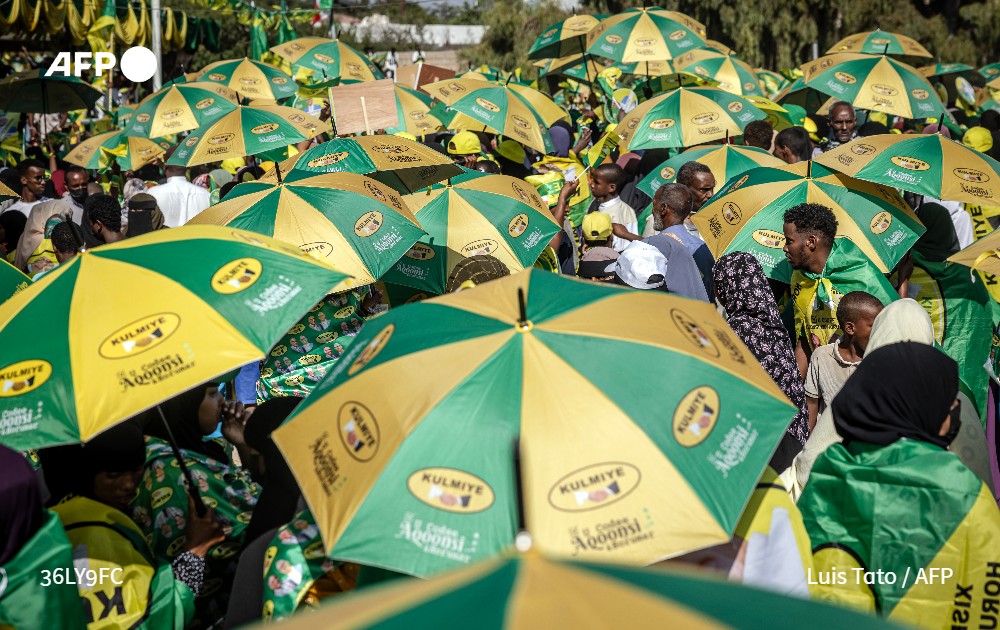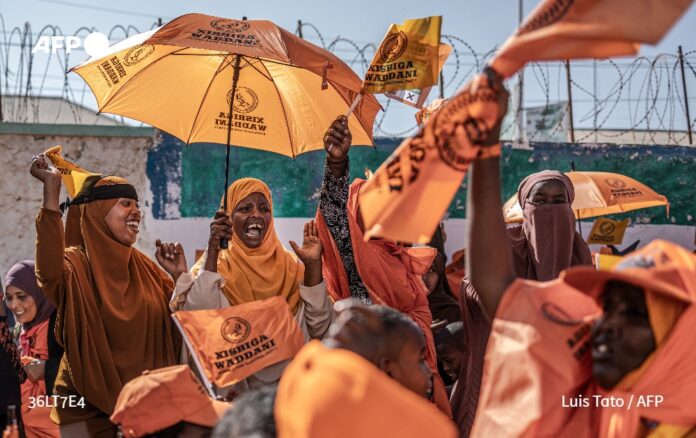As the clock ticks down to Somaliland’s presidential election, the breakaway region of Somalia changes colour every day as political parties take turns to stage their campaign rallies.
From Borama in the west to the Erigavo mountains in the northeast and the capital Hargeisa, cities and towns have erupted in a riot of colour.
One day it was the green and yellow of the incumbent president Muse Bihi’s party Kulmiye (Unity), another the orange of Wadani (National Party), or the dark green of the Social Justice Party.
The self-proclaimed republic, which unilaterally declared independence from Somalia in 1991, is holding a direct election on Wednesday to choose a president.
The vote comes amid high tensions in the Horn of Africa over a maritime deal between Somaliland and Ethiopia that has enraged Mogadishu, which rejects Hargeisa’s independence claim.

Universal suffrage is a rarity in Somalia, where a complex clan-based indirect voting system has been in place for more than half a century.
Bihi, who has led Somaliland since 2017, is facing challenges from Wadani’s Abdirahman Mohamed Abdullahi, also known as “Irro”, and Faysal Ali Warabe of the Social Justice Party.
The multi-party system is the pride of Somaliland’s six million inhabitants, who believe their peaceful democratic norms should earn them the international recognition they have been seeking for 33 years.
“There is no country in the world where people campaign like this,” says Abdisamad, a 34-year-old social worker. “Democracy is a habit here.
“It’s much better than an American election,” he smiles, referring to the tense climate of the campaign in the United States that led to Donald Trump’s November 5 election victory.
The campaign has often been heated — with the opposition for example accusing Bihi of dividing Somaliland — and the outcome between the incumbent and his main rival Abdullahi is up in the air.
But in the streets and at the campaign rallies, the mood is more festive, with the crowds, mostly women and young people, shouting with joy.
On Saturday, Hargeisa and other cities were filled with Bihi supporters waving umbrellas, flags and green and yellow caps, singing and dancing to the sound of the party’s anthems.
The day before, the same streets were filled with the blaring horns of Wadani’s orange cars, buses and trucks and activists chanting “Muse out!” and “Wadani, victory, victory, victory!”
Like the last three direct presidential elections since 2003, “we want this election to be peaceful,” says Anab Jamal Muhammad, an unemployed mother of nine, who says she will cast her ballot for Abdullahi.
In a region of East Africa where elections often give rise to violence, many Somaliland voters say they want to show off their democratic model to the world, hoping it will help win the recognition of the international community.
“Somaliland is a functional government, the people of Somaliland are democratic, they use direct democracy, they have held elections, elected their representatives, their presidents,” says Mahmoud Mohamed Hassan, a 38-year-old social sciences professor.
“All the pillars of democracy are present in Somaliland,” he says. “Why don’t (other) countries recognise us?”


